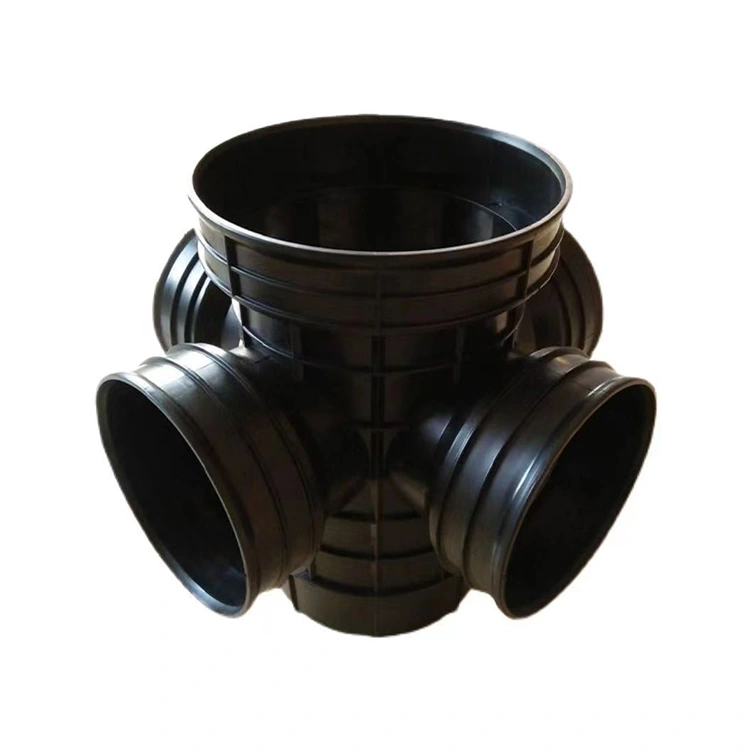Why Is PE Inspection Essential for Ensuring Material Quality and Project Safety?
2025-09-26
When it comes to engineering projects, construction, and material safety, one term that frequently appears is PE Inspection. This process is not only a standard practice in the industry but also a critical assurance of quality and compliance. As someone who has worked with large-scale infrastructure projects and high-demand environments, I know firsthand the importance of professional inspection procedures. Without a proper PE Inspection, risks related to product durability, safety compliance, and long-term performance can easily be overlooked.
In this article, I will explain what PE Inspection is, why it matters, and how our company — Hebei Xiong'an East Boom Engineering Materials Trade Co., Ltd. — applies it to deliver world-class solutions. You will also see detailed product parameters, real-world benefits, and a structured FAQ section to answer the most common questions from clients and partners.
What Is PE Inspection?
PE Inspection refers to the systematic evaluation of polyethylene (PE) materials and products. This inspection ensures that the physical, mechanical, and chemical properties of the materials meet international and project-specific standards. It is widely used in industries such as:
-
Construction and civil engineering
-
Water supply and drainage systems
-
Oil and gas pipelines
-
Environmental protection projects
-
Industrial packaging and materials handling
Through PE Inspection, defects, weaknesses, or inconsistencies can be identified early, avoiding costly failures later.
Why Is PE Inspection Important?
There are several reasons why PE Inspection holds such importance in engineering and industrial applications:
-
Safety Assurance – Ensures that PE materials can withstand pressure, chemical exposure, and long-term environmental challenges.
-
Regulatory Compliance – Meets ISO, ASTM, and local standards required for large-scale projects.
-
Cost Reduction – Prevents project delays and material replacement costs by identifying problems before installation.
-
Performance Guarantee – Confirms durability, strength, and flexibility for intended applications.
-
Environmental Responsibility – Validates that PE products are non-toxic, recyclable, and meet environmental protection standards.
Key Functions of PE Inspection
-
Material Identification – Confirms polymer type and grade.
-
Mechanical Testing – Measures tensile strength, elongation, and impact resistance.
-
Thermal Analysis – Verifies stability under extreme temperatures.
-
Dimensional Accuracy – Ensures thickness, diameter, and uniformity match specifications.
-
Surface Examination – Detects cracks, bubbles, or surface defects.
Product Parameters for PE Inspection
At Hebei Xiong'an East Boom Engineering Materials Trade Co., Ltd., we use strict inspection protocols to guarantee our PE products meet the highest standards. Below is a simple parameter table showing typical inspection indicators:
| Parameter | Standard Range / Requirement | Inspection Method | Purpose |
|---|---|---|---|
| Density | 0.935 – 0.960 g/cm³ | Density gradient column | Confirms polymer structure and grade |
| Tensile Strength | ≥ 21 MPa | Tensile testing machine | Ensures mechanical durability |
| Elongation at Break | ≥ 350% | Elongation testing | Measures flexibility and ductility |
| Impact Resistance | No fracture at specified conditions | Drop weight impact test | Confirms resistance to external force |
| Melt Flow Index (MFI) | 0.2 – 0.35 g/10min | Melt flow rate tester | Assesses processing capability |
| Hydrostatic Pressure Test | No leakage at 80°C, 165h | Internal pressure testing | Ensures pipeline pressure resistance |
This table highlights how comprehensive PE Inspection ensures that every product delivered to our clients meets both technical and safety expectations.
The Role of PE Inspection in Real Projects
Let me share a practical example. In a large-scale water supply project, we were asked to provide PE pipes for underground installation. Through detailed PE Inspection, we confirmed material stability and long-term resistance to soil pressure and water flow. This not only prevented future leakage but also saved the client from high repair costs.
In another project involving oil transport pipelines, PE Inspection revealed minor surface cracks in a batch of materials. By identifying this issue early, we replaced the defective products before delivery, protecting the client's investment and ensuring project safety.
Benefits of PE Inspection for Clients
-
Peace of Mind – Knowing your materials are certified and inspected.
-
Project Efficiency – Reduced delays from defective products.
-
Long-Term Savings – Lower maintenance and replacement costs.
-
Enhanced Reputation – Projects completed with certified materials stand out in quality audits.
Applications of PE Inspection
PE Inspection applies across a wide range of industries:
-
Municipal Infrastructure: PE pipes for water supply, sewage systems, and storm drainage.
-
Industrial Manufacturing: PE sheets and liners for chemical plants and industrial tanks.
-
Agriculture: PE films for irrigation, greenhouses, and soil protection.
-
Oil and Gas: PE pipelines resistant to pressure, corrosion, and temperature.
-
Environmental Engineering: PE geomembranes used in landfills, reservoirs, and containment systems.
FAQ – Common Questions About PE Inspection
Q1: What exactly does PE Inspection cover?
A1: PE Inspection covers a series of evaluations, including density, tensile strength, elongation, impact resistance, melt flow index, and hydrostatic pressure tests. It ensures that polyethylene products meet technical, safety, and regulatory standards.
Q2: Why is PE Inspection necessary before using PE pipes or sheets?
A2: Because PE materials are often used in critical applications such as water supply, oil pipelines, and construction, inspection is essential to verify performance. Without it, small defects can lead to catastrophic failures, leaks, or costly project delays.
Q3: How often should PE Inspection be conducted?
A3: PE Inspection should be carried out both during production and before delivery. For large projects, periodic re-inspection on-site is also recommended to confirm product performance over time.
Q4: Can PE Inspection guarantee long-term performance?
A4: While no test can absolutely predict decades of use, PE Inspection provides a strong guarantee by verifying durability under simulated conditions such as high pressure, elevated temperatures, and mechanical stress. It significantly increases the reliability and lifespan of the materials.
Conclusion
In today's engineering and construction industries, PE Inspection is not just a technical requirement; it is the backbone of quality assurance. From water supply systems to oil pipelines, inspected PE materials ensure long-term safety, cost efficiency, and environmental responsibility.
At Hebei Xiong'an East Boom Engineering Materials Trade Co., Ltd., we take pride in delivering PE products that have undergone the strictest inspection processes. Our mission is to provide reliable materials that stand the test of time and meet the world's highest engineering standards.
For more information about our PE Inspection services or to discuss your project needs, please feel free to contact Hebei Xiong'an East Boom Engineering Materials Trade Co., Ltd. — your trusted partner in engineering materials.





